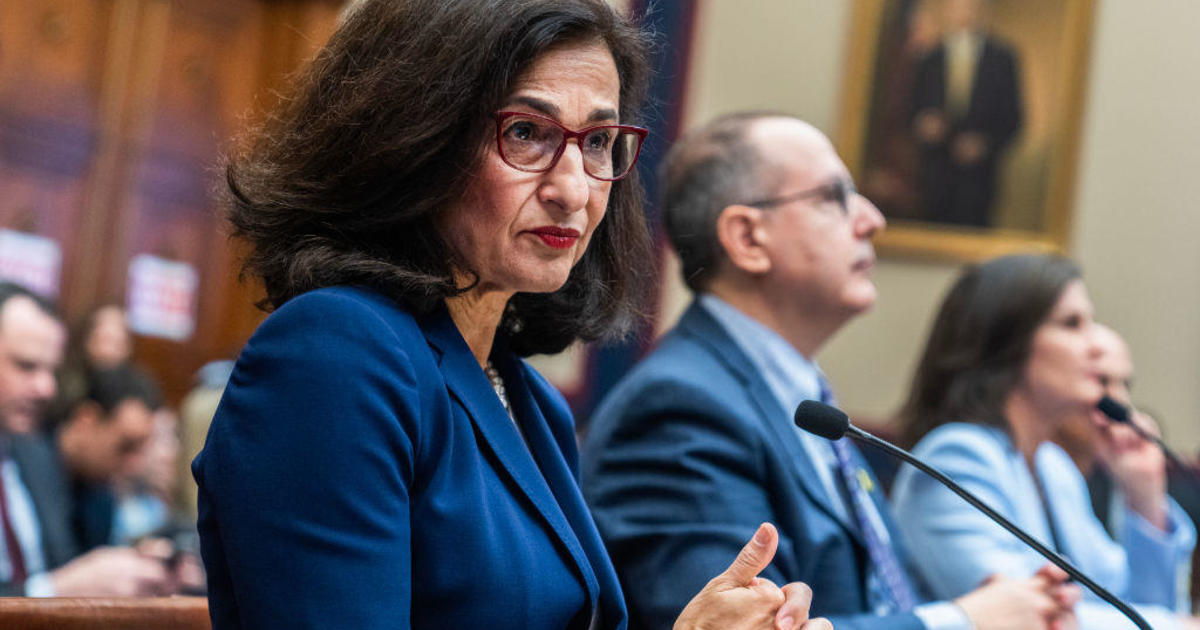Schumer Criticizes Senate GOP On Tax Cut Measure
WASHINGTON (AP) -- Senate Republicans derailed legislation Saturday to extend expiring tax cuts at all but the highest income levels in a political showdown that paradoxically clears a path for a compromise with the White House on steps to boost the economy.
"We need to get this resolved and I'm confident we can do it," President Barack Obama said shortly after the near party-line votes. The public must have "the peace of mind that their taxes will not go up" on Jan. 1, he added.
Obama has signaled that he will bow to Republican demands for extending tax cuts at all income levels, and his remarks capped a day that lurched between political conflict and talk of compromise on an issue that played a leading role in last month's elections.
Sen. Chuck Schumer, D-N.Y., eyeing the 2012 campaign, accused Republicans of siding with "millionaires and billionaires" with their rejection of proposals that would let tax cuts passed during George W. Bush's presidency lapse on seven-figure incomes.
Republicans noted that unemployment rose to 9.8 percent last month and said it made no sense to raise taxes on anyone in a weak economy. Sen. Jon Kyl, R-Ariz., jabbed that Democrats were undergoing a "political catharsis" in public after losing control of the House and surrendering several seats in the Senate in the Nov. 2 election.
But the rhetoric subsided quickly after the votes, and Senate leaders in both parties said they hoped political clashes would give way to compromise in the next several days.
Kentucky Sen. Mitch McConnell, the GOP leader, said he was relatively confident there would be a deal with the White House "not to raise taxes in the middle of a recession." He said talks were continuing on the length of an extension to be enacted for the cuts that were put in place in 2001 and 2003.
Senate Majority Leader Harry Reid, D-Nev., said he hoped for an agreement by the middle or end of next week on legislation that would combine an extension of tax cuts with a renewal of expiring jobless benefits for the long-term unemployed.
Officials have said that in addition to tax cuts and unemployment benefits, the White House wants to include renewal of several other tax provisions that are expiring. They include a break for lower- and middle- class wage earners, even if they don't make enough to pay the government, as well as for college students and for companies that hire the unemployed.
Obama later spoke with Reid and House Speaker Nancy Pelosi. A White House official said the president told them he was open to a temporary extension of the tax cuts if the Democratic priorities were included in the deal.
Key lawmakers and administration officials have been at work negotiating the terms of a possible deal for several days.
But many congressional Democrats privately have expressed anger at Obama for his willingness to surrender to Republican demands to let the tax cuts remain in place at upper incomes, and numerous officials said no compromise would be possible until they had engineered votes in both the House and Senate.
Any deal would mean a reversal for Obama, who said in the 2008 presidential race and this year that he wanted to let cuts expire above incomes of $200,000 for individuals and $250,000 for couples.
In the Senate, a bill to enact Obama's original position was blocked on a vote of 53-36, seven votes short of the 60 needed to advance. Republicans were unanimous in their opposition, and were joined by Democratic Sens. Russell Feingold of Wisconsin, Joe Manchin of West Virginia, Ben Nelson of Nebraska, Jim Webb of Virginia and independent Joseph Lieberman of Connecticut.
The second measure would have let taxes rise on incomes over $1 million. It appeared crafted to appeal to senators from states with large high-income populations, as well as cast Republicans as protectors of the rich.
It was blocked on a vote of 53-37, also seven short of the 60 needed. A slightly different lineup of Democrats sided with Republicans, including Sens. Dick Durbin of Illinois, Tom Harkin of Iowa, Jay Rockefeller of West Virginia and Feingold. Lieberman also opposed it.
The White House opposed the second measure bill, and given the president's willingness to sign a bill to extend all the expiring tax cuts, there was never any doubt about the outcome of the day's proceedings in the Senate.
But Democrats said that even with elections nearly two years away, they intended to try and depict Republicans as defenders of the rich whose policies contribute to rising deficits.
"Do we want to extend those tax breaks for millionaires and billionaires at a time of huge deficits. I would argue vociferously we shouldn't," said Schumer.
Referring to the 2012 elections, he said about Republicans: "I'm going to be here for the next year, next two years, to remind my colleagues that they were willing to increase the deficit $300 billion to give tax breaks to people who have income over a million dollars."
Republicans sounded alternately bemused and offended.
"It is the most astounding theory I have ever seen. Raise taxes to create jobs," said Sen. John Thune, R-S.D.
Sen. Orrin Hatch, R-Utah, said Democrats perhaps viewed the votes as a gift to their political constituents. But, he added, "two years of wall to wall Democratic rule has only made the situation worse" in the economy.
The day's events capped a week that included a meeting at the White House at which Obama and top congressional Republicans sat down together for the first time since the elections.
Both the president and GOP lawmakers pledged afterward they would try to work together for the good of the economy, and agreed to set up a small negotiating group to discuss the tax issues.
The White House, Reid and Republicans have been negotiating quietly, and McConnell made a point of saying he had been in frequent touch with the administration in recent days.
In addition to tax cuts, Obama has made ratification of a new arms control treaty with Russia a priority of the postelection session of Congress, reducing his leverage with Republicans in the struggle over taxes.
Senior Senate Republicans have indicated they will not try to interfere with a debate on the issue as long as government spending and tax cut issues have been resolved to their satisfaction.
A two-thirds majority is required for ratification, meaning the White House will need the support of at least nine Republicans to prevail. Vice President Joseph Biden and other officials have been involved in talks with several GOP senators in hopes of lining up the votes needed.
(Copyright 2010 by The Associated Press. All Rights Reserved.)



